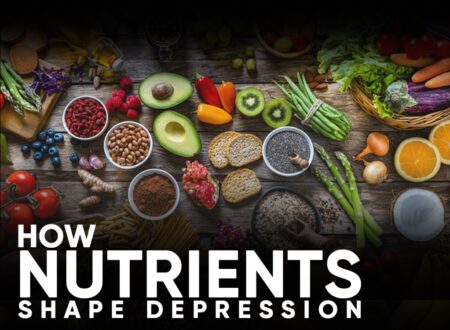The actor shares how a simple daily routine helped her rediscover balance, energy, and inner calm.
In an age when wellness often feels like a race, filled with diets, detox teas, and quick-fix fads, actor Neha Dhupia chose to slow down. Her decision to embark on a 21-day anti-inflammatory challenge wasn’t about chasing transformation; it was about understanding her body’s signals and responding with kindness.
“I didn’t do this to lose weight,” she says. “It wasn’t about fitting into a certain size. I wanted to feel good from within, calmer, more energized, and less inflamed.”
What began as an experiment turned into a reset that not only improved her digestion and energy but also changed the way she approached her overall wellbeing. “By the end of it, I could feel the difference, my skin felt healthier, my gut was stronger, and I had more steady energy throughout the day. It worked differently than a diet, but it truly worked wonders,” she shares.
The foundation of Dhupia’s challenge lay in a simple but potent morning drink, a concoction curated by her nutritionist Richa Gangani, designed to calm inflammation and restore balance from within.
The mixture combined raw turmeric, fresh ginger, black peppercorns, nigella seeds (kalonji), and MCT oil, all known for their anti-inflammatory and immune-supportive properties.
“Turmeric and ginger have strong anti-inflammatory and antioxidant compounds,” explains Gangani. “Black pepper enhances the absorption of curcumin, the active compound in turmeric, while nigella seeds help support the immune system. The MCT oil, or medium-chain triglyceride oil, adds healthy fats that improve nutrient absorption and provide a clean source of energy.”
Dhupia admits that the blend was an adjustment at first. “In the beginning, I found the MCT oil a little heavy. But once I started having it diluted in water, it settled beautifully. Soon, my body began to adapt, I felt lighter and more in tune with myself.”
The anti-inflammatory challenge focuses on reducing internal inflammation, a process that, if left unchecked, contributes to fatigue, bloating, dull skin, and even chronic health issues like diabetes or joint pain.
For Dhupia, the challenge was about addressing that underlying inflammation. “You don’t always realize how inflammation affects your body until you start working on it,” she says. “It’s not just about visible swelling or pain, sometimes it shows up as puffiness, sluggishness, or even irritability. Once that starts to calm down, everything changes, your energy, your mood, your skin.”
Her results were both visible and deeply felt. “After completing the challenge, I felt clearer, lighter, and more balanced, not in a dramatic, overnight way, but as a quiet internal shift that built over time,” she reflects.
Nutrition experts agree that the ingredients in Dhupia’s regimen are backed by science. Dt. Amreen Sheikh, Chief Dietitian at KIMS Hospitals, Thane, notes that turmeric, ginger, black pepper, and nigella seeds are rich in compounds that help calm inflammation and support digestive and immune health.
“These spices and seeds contain antioxidants and phytonutrients that support gut function and regulate inflammatory responses in the body,” says Sheikh. “Healthy fats like MCT oil or ghee further enhance the absorption of these nutrients. When consumed consistently, such a combination can help people feel lighter, improve their digestion, and even boost their energy levels.”
However, Sheikh is quick to clarify that while such regimens can produce noticeable short-term benefits, they are not magic cures. “These ingredients support wellness, they don’t replace a healthy lifestyle. You might experience improvements in energy and digestion within a few days, but for sustainable results, you need a balanced diet, regular exercise, good sleep, and stress management.”
While the 21-day anti-inflammatory routine is safe for most adults, experts advise caution for those with certain health conditions. “People with acidity, gallstones, or those on blood thinners should consult a doctor before starting,” says Sheikh. “Turmeric and ginger can sometimes worsen these conditions or interact with medications.”
Her advice is to start small and observe how your body responds. “If you experience discomfort or acidity, pause and reassess. The key is to listen to your body, wellness should always feel supportive, not stressful.”
Many people wonder if a 21-day program can truly make a difference, and according to experts, the answer is: yes, but within limits.
Short-term improvements like better digestion, reduced bloating, and clearer skin are achievable. “Three weeks is enough time to notice your body recalibrating,” says Sheikh. “But chronic inflammation, the kind linked to long-term diseases, can only be reversed through consistent habits practiced over months or years.”
In other words, the challenge can be a great starting point, but not the full solution. “It gives you that initial boost, that feeling of lightness and motivation to continue making better choices,” Sheikh adds.
Dhupia seems to agree. “This challenge reminded me that wellness isn’t about quick fixes. It’s about steady, mindful habits. You can’t heal in 21 days, but you can learn what healing feels like, and that’s a great place to begin.”
For Dhupia, the biggest transformation wasn’t just physical, it was mental. The anti-inflammatory challenge encouraged her to slow down and check in with herself every day. “It made me more mindful of my choices, what I eat, how I rest, how I start my mornings. That awareness itself is healing,” she says.
Experts like Sheikh affirm this approach. “Consistency, hydration, good sleep, and stress management form the backbone of any anti-inflammatory lifestyle. The drink is a supplement to these, not a replacement.”
Neha Dhupia’s 21-day journey is a timely reminder that wellness isn’t about restriction, it’s about realignment. It’s not about cutting calories, but about calming chaos, internal and external.
“It’s not a diet, it’s not a cleanse,” Dhupia concludes. “It’s a practice, something that reconnects you with your body and teaches you to listen to it again.”
For anyone inspired to try something similar, experts recommend approaching it with intention, not imitation. The anti-inflammatory challenge is not a one-size-fits-all formula, it’s a tool for reconnection.
Because sometimes, as Dhupia’s experience proves, the most profound transformations come not from doing more, but from simplifying, one mindful morning at a time.
Disclaimer: This article is based on publicly available information and expert insights. Always consult a qualified healthcare professional before beginning any new dietary or wellness program






